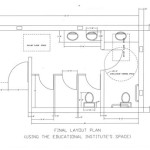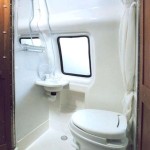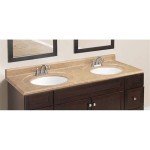Water Supply Leak Under Bathroom Sink: A Comprehensive Guide to Diagnosis and Repair
A water supply leak under the bathroom sink is a common yet frustrating issue that can lead to water damage and increased utility bills if left unaddressed. To effectively tackle this problem, it's crucial to understand the common causes, symptoms, and steps involved in diagnosing and repairing the leak.
Diagnosing a Water Supply Leak
1. Inspect the Water Supply Lines: Start by checking the water supply lines that connect the sink to the main water supply. Look for any visible cracks, leaks, or loose connections. Tighten any loose fittings using a wrench and replace any damaged lines as needed.
2. Check the Faucet: The faucet handles and spout are potential culprits for leaks. Turn off the water supply and remove the handles to check for worn or damaged O-rings or gaskets. Inspect the spout for any cracks or corrosion that may cause dripping.
3. Examine the Drain Connections: Loose or damaged drain connections can lead to leaks around the sink base. Inspect the P-trap (the U-shaped pipe under the sink) for any cracks or loose fittings. Tighten any loose connections or replace the P-trap if necessary.
Repairing a Water Supply Leak
1. Turn Off the Water Supply: Before attempting any repairs, it's essential to turn off the water supply to the sink. You can do this by closing the angle stop valves located under the sink or by turning off the main water supply to the house.
2. Replace Worn Parts: Once the water supply is shut off, replace any worn or damaged parts that were identified during the diagnosis. Use pliers or a wrench to remove old parts and install new ones. Ensure that all connections are tight and leak-free.
3. Repair Cracked Lines: If the leak is caused by a cracked water supply line, you may be able to repair it with a repair clamp. However, if the crack is significant, it's best to replace the entire line.
4. Fix Drain Connections: Tighten any loose drain connections using a wrench or pliers. If the P-trap is cracked or damaged, remove it and install a new one. Ensure that the rubber gasket between the P-trap and the sink is properly seated.
Preventing Future Leaks
1. Regular Inspections: Regularly inspect the water supply lines, faucet, and drain connections for any signs of wear or damage. Address any potential issues promptly to prevent future leaks.
2. Quality Fixtures: Use high-quality fixtures and materials during repairs or replacements. This includes faucets with durable O-rings and water supply lines made of corrosion-resistant materials.
3. Proper Installation: Ensure that all plumbing fixtures and connections are properly installed and tightened. Incorrect installation can lead to leaks and other issues.
By following these steps and addressing water supply leaks promptly, you can maintain a functional and watertight bathroom sink while minimizing the risk of further damage or costly repairs.
Common Sink Leaks You Could Probably Fix Yourself

How To Handle Leaking Pipes Under The Bathroom Sink Aggressive Mechanical

Bathroom Sink Drain Leaking Around Threads Premier Plumbing Inc

Hose Under Your Sink Is Leaking Here S What You Have To Do

How To Fix Constant Leak Under Bathroom Bunnings Work Community

How To Fix A Leak Under Your Sink

Bathroom Sink Drain Leaking Around Threads Premier Plumbing Inc

Bathroom Leak Top 5 Causes Waterleak Co

Solution Of Bathroom Leaking And Water Damaged A H Construction

Leak Under Sink In Kitchen 6 Most Likely Causes
Related Posts







